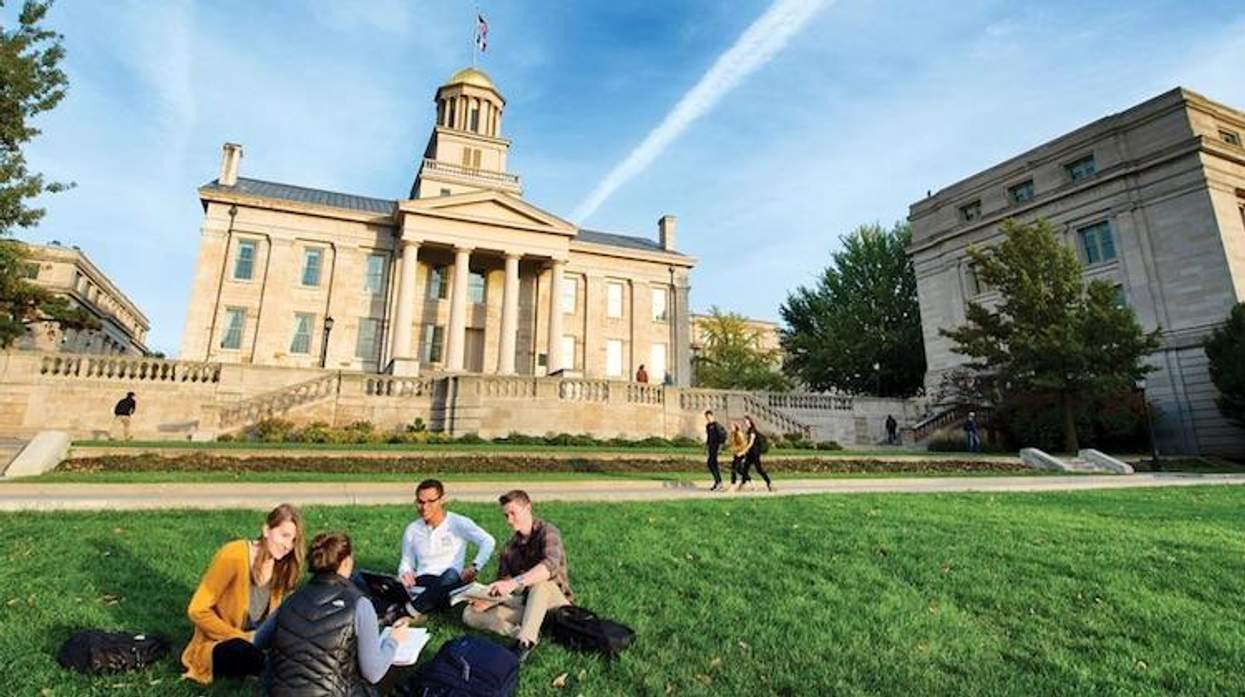A day after a federal judge ruled the University of Iowa could not revoke the status of a campus group for blocking a gay student from holding a leadership position, right-wing student organizations lobbied lawmakers in the state to extend "religious liberties" and protect groups from tolerant school policies.
Judge Stephanie Rose on Wednesday sided with the group Business Leaders in Christ in a federal case. The judge ruled the University of Iowa could not punish the student group for violating its Human Rights Policy for discriminating against a student based on sexual orientation, as reported by the Iowa City Press-Citizen.
The university in 2017 stripped the group of its status when it denied a student a leadership position based on his being out.
A day later, conservative student groups from the school testified to the Iowa Senate they needed more protections from schools and universities, according to the Des Moines Register.
"Students today now are fearful of disciplinary repercussions and character assassination from campus administrators all because they strive to freely assemble and exercise their First Amendment rights," reads a statement from the University of Iowa College Republicans to the Iowa Senate.
The students support a bill under consideration in Iowa that would direct universities to shield conservative students and provide a space for individual freedom. The bill advanced through a Senate subcommittee.
The legislation reads: "It is not the proper role of an institution of higher education to shield individuals from speech protected by the first amendment to the Constitution of the United States, which may include ideas and opinions the individual finds unwelcome, disagreeable or even offensive."
Notably, Rose's ruling made clear the university does have the right to establish a Human Rights Policy.
"There is no fault to be found with the policy itself. But the Constitution does not tolerate the way Defendants chose to enforce the Human Rights Policy," Rose wrote.
Rather, she decided the way the university invoked its policy was inappropriate. Revoking the student organization's status, she said, was not necessary to "serve a compelling state interest."
The judge stressed the dispute in front of her was between the university and student group, and she would not address the question of whether the group in fact should have discriminated against the gay student.
Rather, she said the school allowed other organizations to limit membership based on race, sex and religious views, but singled Business Leaders in Christ Out for its internal decisions, according to NBC News.
"Particularly when free speech is involved, the uneven application of any policy risks the most exacting standard of judicial scrutiny, which the defendants have failed to withstand," she wrote.




































































Charlie Kirk DID say stoning gay people was the 'perfect law' — and these other heinous quotes